
|
GCOOS is the Gulf of Mexico regional component of the U.S. Integrated Ocean Observing System (IOOS). Our mission is to provide timely, reliable and accurate information on the open and coastal ocean waters of the Gulf of Mexico to ensure a healthy, clean, productive ocean and resilient coastal zone.
|
|
|
|
January 2018 - In This Issue:
|
|
|
|
|
Greetings!

The year is getting off to a great start with a new report on the Loop Current from the National Academies' Gulf Research Program, an important document that includes discussion on the gaps and needs for additional observational tools in the Gulf. I'd encourage all of you to
register for the GRP's webinar TOMORROW to learn more about the report.
The Loop Current will also be the subject of a special
town hall meeting during the annual Ocean Sciences Meeting, which is taking place this year in Portland. Kelly Oskvig from NAS will be the keynote speaker and I'll be participating in the panel discussion on why the Loop Current and associated eddies continue to challenge monitoring & modeling.
We're also looking forward to the meeting we're hosting next week of the Animal Telemetry Network. Check out the details below. We'll be sure to post a report on our website following the meeting.
Happy New Year!
|
|
|
Nadine Slimak, Public Relations & Content Marketing, Vetted Communications, LLC
|
|
|
|
Please join us for GCAN's Next Webinar
|
The GCOOS Coastal Ocean Acidification Network is hosting an upcoming webinar about improving beach forecasting during red tide blooms. G-CAN's goal is to identify
 vulnerabilities in the Gulf ecosystem that may be impacted by OA, foster collaborations to increase ocean observations and develop strategies to help mitigate impacts.
The network is a collaboration between GCOOS and NOAA's Ocean Acidification Program and includes federal and state agency representatives, resource managers, industry partners and research scientists.
The next webinar is being presented by Dr. Barbara Kirkpatrick, GCOOS Executive Director, and is titled "Forecasting 'Every Beach, Every Day' to Improve Public Health Information During
Karenia Brevis Blooms."
- When: 3 p.m. EST Jan. 30
- Register now. After registering, you will receive a confirmation email containing information about joining the webinar.
The GCAN Webinar Series offers topical presentations by researchers, coordinating entities, state and federal agencies and impacted industries about how ocean acidification is unfolding within the Gulf of Mexico and how the region can better organize to promote additionally needed science, monitoring, and information capacity.
|
|
|
|
Agenda Available for ATN Meeting
|
GCOOS is hosting the next workshop of the IOOS Animal Telemetry Network (ATN) Jan. 23-24 in New Orleans. The workshop title is "Identifying regional stakeholder
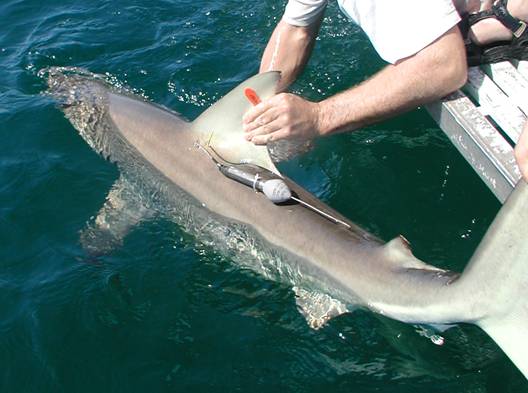 needs and priorities for animal telemetry observations of marine species."
The workshop series -- one is being hosted by each IOOS regional association -- has several goals:
- Identify regional priorities for telemetry observations of aquatic species, including fishes, turtles, pinnipeds, whales and seabirds;
- Determine whether priorities could be served by an ATN baseline network;
- Examine whether the type and extent of existing telemetry assets could adequately satisfy identified requirements.
- Information generated at the workshop will be used by the ATN to ensure that a concise plan for sufficient funding of the envisioned national ATN program -- including infrastructure, operations, integration and coordination of assets -- will be achieved.
|
|
Get Your GCOOS Board Nominations in Now: We Need You!
|
GCOOS' Membership Committee is seeking nominations
 for the organization's Board of Directors. People interested in and committed to working within an organization dedicated to provide data, information and products to the Gulf of Mexico stakeholder community from all sectors -- governmental, NGO, industry and academia -- are invited to nominate themselves or a colleague.
|

Challenging the Loop: Town Hall Event During the Ocean Sciences Meeting
|
During this year's Ocean Sciences Meeting Feb. 11-16 in Portland, Oregon, the Marine Technology Society and the Loop Current & Eddies Alliance are sponsoring a town hall meeting on the Loop Current.
During "Challenging the Loop," the Gulf Research Program will
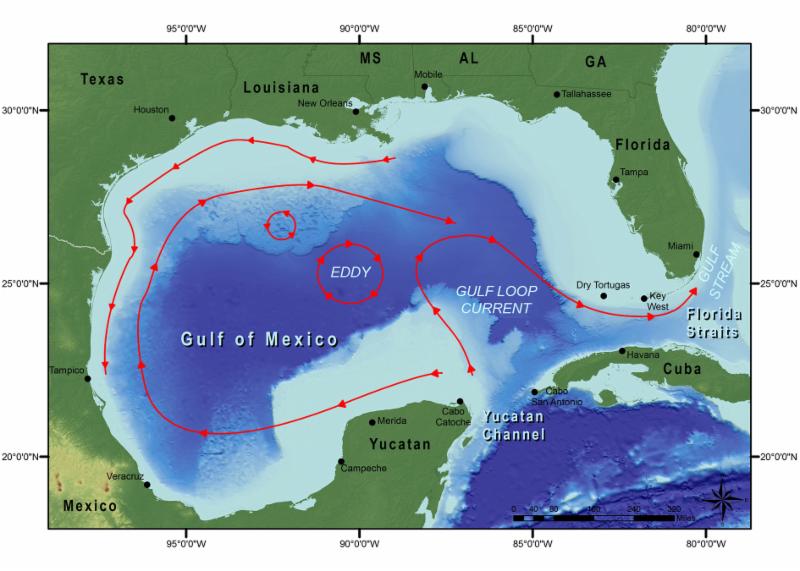 present their recommendations and next steps towards improving characterization of the Loop Current System. The meeting will also include an expert stakeholder panel which will deliberate on why the Loop Current and associated eddies continue to challenge monitoring & modeling. GCOOS Executive Director Dr. Barbara Kirkpatrick will serve on the panel with Rick Spinrad, Former NOAA Chief Scientist, Steve DiMarco, Texas A&M University, Neha Sharma, CLS Horizon Marine, Fritz Stahr, University of Washington. GCOOS Board Member Pat Hogan, Naval Research Lab, and Dave Mellinger, Oregon State University, have also been invited to serve on the panel.
LCS dynamics are fundamental to the Gulf's complex oceanographic processes: deep Gulf physics, eddy migration, hurricane interactions, and Gulf ecosystem connectivity. Targeted observations, time-series monitoring, new technologies, & improved hydrodynamic models, could improve knowledge of the LCS and Gulf of Mexico oceanographic processes.
- The Town Hall is from 6 p.m. to 8 p.m. Feb. 14 in the Oregon Ballroom 201, Portland Convention Center.
|
Register Today: GRP Loop Current Webinar Takes Place Tomorrow
|
The Gulf Research Program is hosting a webinar at 3 p.m. EST tomorrow (Thursday, Jan. 18), to provide information about the National Academies' new report on the
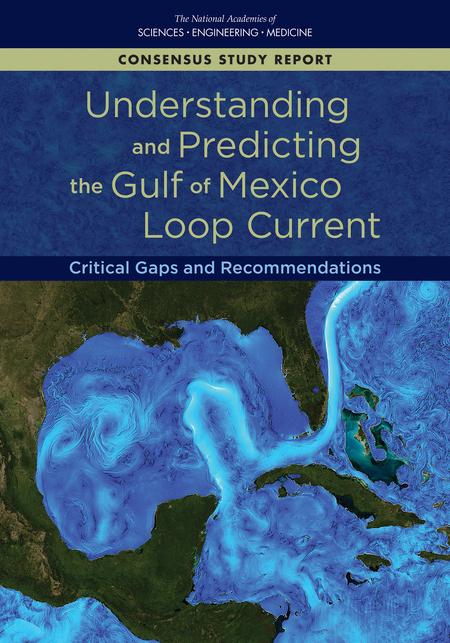 Gulf of Mexico Loop Current System.
The report, released last week, calls for an international, multi-institutional campaign of complementary research, observation, and analysis activities that would help improve understanding and prediction of the Loop Current System.
The first funding opportunity, Understanding Gulf Ocean Systems grants, will open in early February. These grants will focus on the report's near-term recommendations, which address activities that can be started before extensive planning for the larger research campaign has gotten under way.
|
|
Help With Hurricane Recovery
|
In response to the impacts of Gulf Coast Hurricanes Harvey and Irma,
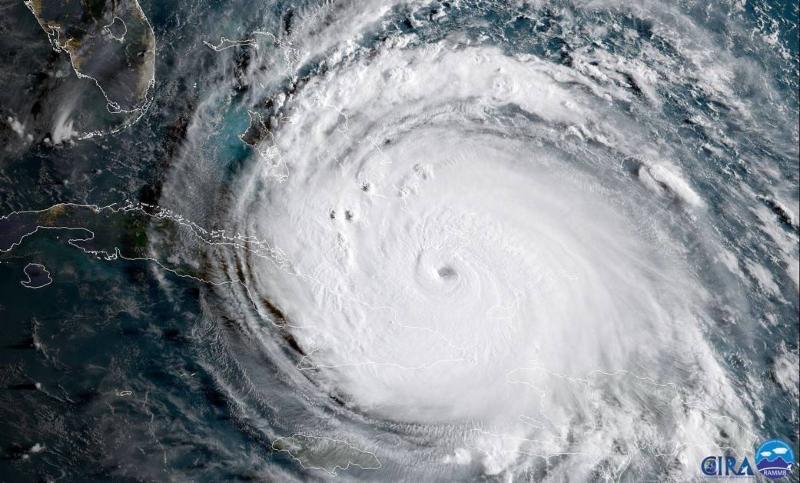 the Gulf Research Program will be awarding up to $2 million in fast-track grants to help in the recovery of scientific research related to our focus on human health, environmental resources and offshore energy systems in the Gulf of Mexico region.
If your natural or social science research was affected by Hurricane Harvey or Irma, you may be eligible to apply for up to $50,000 to help with the repair, replacement, or recovery of your equipment, data or other research materials, including communication with study participants.
Funding is occurring in two cycles. Applications for the first cycle closed on Jan. 3, 2018. Applications for the second cycle are due by 5 p.m. EST, Feb. 28, 2018.
|
|
New Gulf Research Program Advisory Board Members
|
The Gulf Research Program welcomed four new members to its Advisory Board:
- Dr. Diane Austin, University of Arizona
- Dr. Subrahmanyam Bulusu, University of South Carolina

- Dr. Kerstin Lehnert, Columbia University
- Dr. José Sarukhán, Universidad Nacional Autónoma de México
The Advisory Board provides strategic leadership on program planning and implementation. Their terms begin Jan. 1, 2018. GRP also recognized outgoing Advisory Board members:
- Dr. Porfirio Álvarez-Torres, Consortium of Marine Research Institutions of the Gulf of Mexico and the Caribbean
- Dr. Elliot Atlas, University of Miami
- Mr. J. Ford Brett, PetroSkills
- Dr. Sara Graves, University of Alabama in Huntsville
- Dr. Anthony H. Knap, Texas A&M University
|
The Alliance Priority Issue Teams are also hosting workshops and holding individual team mid-year meetings over the next few months. The one or two-day meetings are intended to give the Teams an opportunity to work more closely on specific projects related to Action Plan III.
|
Thousands of miles from the Gulf of Mexico, scientists
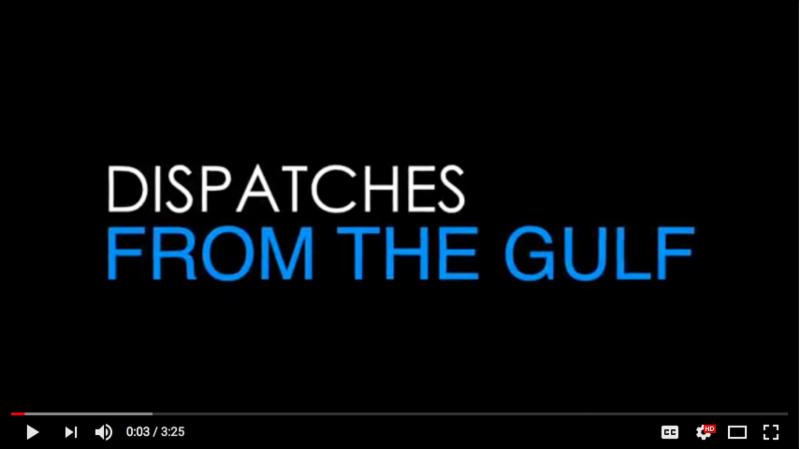 in Norway and Germany are collaborating with Johns Hopkins and the University of South Florida on oil spill studies.
Researchers created a tower basin to recreate the conditions of a deep-sea oil well blow out in miniature. This impressive set up let them spray high pressure oil droplets and look at the effect of one of the most controversial parts of the Deepwater Horizon spill: adding chemical dispersants into the stream of escaping oil.
|
In December, the Gulf of Mexico Sea Grant oil spill
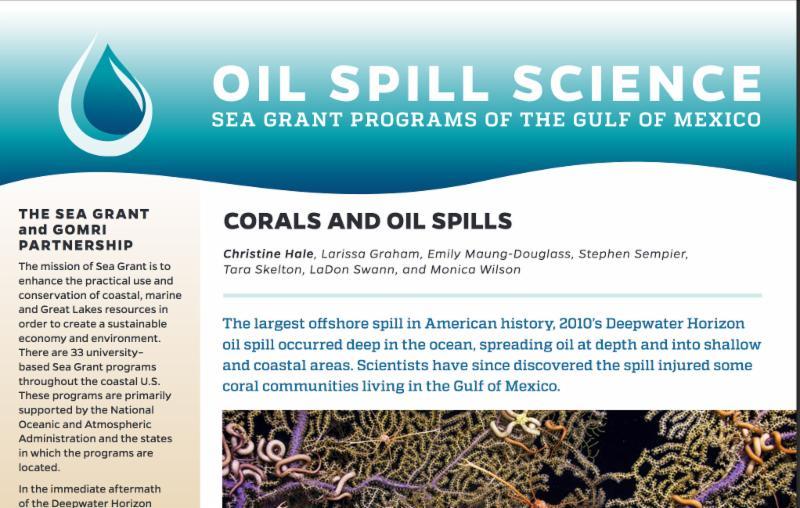 science specialists released a publication on corals titled "Coral and Oil Spills."
Scientists have discovered that the 2010 Deepwater Horizon oil spill injured some deep water coral communities, while others in shallow areas appeared unharmed.
|
The MAM Manual includes recommended procedures and guidelines that build upon the monitoring frameworks and conceptual monitoring plans developed for Early Restoration. It includes a template for project-specific MAM plans and monitoring guidance for wetlands, beaches and dunes, barrier islands, water quality and recreational use restoration approaches. It also includes recommendations for implementing adaptive management at the project level, when appropriate.
|
Restoration Funding Calendar
- NOAA RESTORE Act Science Program hosts a three-year calendar that consolidates planned funding opportunities
By State:
|
|
BP will assume a further $1.7bn post-tax impairment charge on expenses related to the Deepwater Horizon oil spill, taking the total cost of the spill to more than $65bn
|
From OffshoreTechnology.com:
BP will assume a further $1.7bn post-tax impairment charge on expenses related to the Deepwater Horizon oil spill, taking the total cost of the spill to more than $65bn.
The charge will be included in the company's fourth-quarter report, with this disaster continuing to affect the company eight years after the event.
In recent months, settlement claims have ended up costing the company around seven times more than it originally estimated.
|
|
Secretary Zinke Announces Offshore Oil & Gas Lease Plans
|
U.S. Secretary of the Interior Ryan Zinke today announced the next step for responsibly developing the National Outer Continental Shelf Oil and Gas Leasing Program 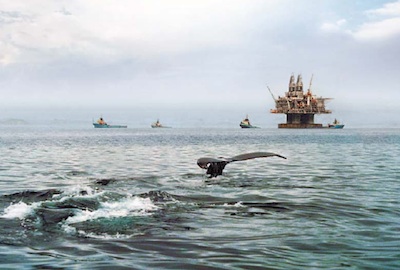 (National OCS Program) for 2019-2024, which proposes to make over 90 percent of the total OCS acreage and more than 98 percent of undiscovered, technically recoverable oil and gas resources in federal offshore areas available to consider for future exploration and development. By comparison, the current program puts 94 percent of the OCS off limits. In addition, the program proposes the largest number of lease sales in U.S. history. (National OCS Program) for 2019-2024, which proposes to make over 90 percent of the total OCS acreage and more than 98 percent of undiscovered, technically recoverable oil and gas resources in federal offshore areas available to consider for future exploration and development. By comparison, the current program puts 94 percent of the OCS off limits. In addition, the program proposes the largest number of lease sales in U.S. history.
The Draft Proposed Program (DPP) includes 47 potential lease sales in 25 of the 26 planning areas -- 19 sales off the coast of Alaska, 7 in the Pacific Region, 12 in the Gulf of Mexico, and 9 in the Atlantic Region. This is the largest number of lease sales ever proposed for the National OCS Program's 5-year lease schedule.
|
|
BOEM Invites Input on Wind Project Draft Design Guidelines
|
|
the Bureau of Ocean Energy Management (BOEM) has announced the availability of draft guidelines for the use of a "Design Envelope" approach in Construction and Operations Plans (COPs) for offshore wind energy facilities in the United States.
In order to take advantage of the rapid pace of technological development within the offshore wind industry, offshore wind developers have asked BOEM to adopt this practice which is standard in some European countries for permitting offshore wind energy projects. This would afford developers a degree of flexibility and allow them to make certain project-design decisions-such as which turbines to use-at the more commercially advantageous time later in the project-development process.
BOEM welcomes input from industry and other interested stakeholders before finalizing this guidance. To help facilitate this conversation, BOEM will be hosting a webinar on the draft guidance on Jan. 31, 2018.
|
|
Hurricane Recovery Grants
|
|
Depending on appropriations, the
NOAA National Sea Grant College Program expects to have available a total of $7 million to $11.5 million across fiscal years 2018, 2019 and 2020 as part of the Sea Grant National Aquaculture Initiative (NAI). This competition is designed to foster the expansion of a sustainable U.S. ocean, coastal and Great Lakes aquaculture sector by addressing several priorities.
|
|
Grants to Increase Scientific and Enviro Literacy
|
|
The Gulf Research Program is offering up to $3 million in grants to support efforts to increase the scientific and environmental literacy and problem-solving skills of children and youth, with a focus on service-, project-, or problem-based learning opportunities in areas relevant to our initiatives.
A letter of intent is required. Submit by 5 p.m. EST Feb. 14, 2018.
|
|
New Coastal and Ocean Modeling Testbed (COMT) Federal Funding Opportunity
|
|
The U.S. IOOS Program is seeking to fund projects through its Coastal and Ocean Modeling Testbed (COMT) which advance new or existing solutions that address long standing and emerging coastal modeling and forecast product development challenges. The program priorities for this funding opportunity are to facilitate and accelerate the transition of models and model based technologies from research environments toward operational readiness, and will be focused on models, tools or products for which there are demonstrated operators and end users. Of particular interest are coastal ocean and lake phenomena that intersect the mission goals of NOAA, other operational agencies, and the IOOS Regional Associations. Projects are also expected to participate in and advance the operation of the U.S. IOOS COMT under a community modeling environment. Total estimated funding for all awards is up to $2 million per year from the U.S. IOOS Program. Multiple awards are anticipated, subject to availability of funds, in amounts up to $300,000 per year for up to three years.
- Due Date: Full proposals must be received no later than 11:59 PM EST Friday, Jan. 19, 2018.
- The full funding opportunity and information on how to apply can be found on grants.gov or by visiting the FAQ for this FFO . For more information, please contact Debra Esty, U.S. IOOS, 240-533-9446 or [email protected].
|
Federal Funding Opportunity for Coastal Hypoxia Research Program (CHRP)
|
|
NOAA/NOS/National Centers for Coastal Ocean Science (NCCOS) is soliciting proposals for the Coastal Hypoxia Research Program (CHRP). Funding is contingent upon the availability of Fiscal Year 2018 Federal appropriations. It is anticipated that projects funded under this announcement will have a Sept. 1, 2018 start date. Applicants should submit proposals not to exceed $275,000 per year for projects generally 2-4 years in duration, with a total multi-year budget not to exceed $1.1 million. If funds become available for this program, up to approximately $900,000 may be available in Fiscal Year 2018 for the first year of about 3-5 projects with expected start dates of Sept. 1, 2018. Funding for this program is contingent upon availability of funds, which may not have been appropriated at the time of this announcement.
|
Federal Funding Opportunity for 2018 Regional Ecosystem Prediction Program: Understanding Coral Ecosystem Connectivity in the western Gulf of Mexico
|
|
NOAA/NOS/National Centers for Coastal Ocean Science (NCCOS), in partnership with the NOAA Office of National Marine Sanctuaries, Office of Ocean Exploration and Research, and the National Marine Fisheries Service's Southeast Regional Office, is soliciting proposals under the Regional Ecosystem Prediction Program for a project up to 5 years in duration to conduct research to improve the understanding of population connectivity of key coral ecosystem species in the western Gulf of Mexico between the Flower Garden Banks National Marine Sanctuary and the reefs and banks to the east of the current Sanctuary boundaries in the northern Gulf of Mexico, but can also include coral ecosystems upstream and downstream as relevant. This information will be used to support decisions concerning current and future marine protected area (MPA) management and MPA networks for shallow and mesophotic coral ecosystems in the Gulf of Mexico and provide insight into regional connectivity. Funding is contingent upon the availability of Fiscal Year 2018 Federal appropriations. If funds become available for this program, one project is expected to be supported for up to 5 years, with an approximate annual budget up to $750,000.
|
|
Oil Spill Science Outreach Team Seeks Extension Specialist
|
The well-established program serves as a bridge between oil spill science researchers and interested stakeholders, synthesizing and translating peer-reviewed findings for those who rely on a healthy Gulf of Mexico for work or play.
Please address inquiries about the position to
LaDon Swann, director of the Mississippi-Alabama Sea Grant Consortium and director of Auburn University Marine Programs.
|
The Marine Ecotoxicology Lab at the Marine Environmental Sciences Consortium is seeking a motivated individual as Project Coordinator for a 5-year program international research collaborative Partnerships in International Research and Education (PIRE) funded by the NSF.
The project entitled: PIRE: Advancing Global Strategies and Understanding on the Origin of Ciguatera Fish Poisoning in Tropical Oceans, is led by Dr. Alison Robertson and is a global research and education project that includes scientists from around the U.S., Australia, Canada, United Kingdom, Cuba, Hong Kong and Norway.
Key Responsibilities: The primary function of the Project Coordinator will be to support the daily administration and management of the project under the direction of the principal investigator.
|
2018
February
Gulf of Mexico Oil Spill and Ecosystem Sciences, February 5-9, 2018, New Orleans, LA. Don't forget, the conference is still accepting abstracts that promote fundamental Gulf ecosystem science or link scientific results to ecosystem resilience, oil spill response, or restoration and management. The deadline to submit an abstract is September 11, 2017.
2018 AGU/ASLO/TOS Ocean Sciences Meeting, February 11-16, 2018, Portland, Oregon.
Biennially, American Geophysical Union (AGU), the Association for the Sciences of Limnology and Oceanography (ASLO) and The Oceanography Society (TOS) co-sponsor a meeting allowing members galvanize and share their scientific and technological breakthroughs and discoveries and discuss the current state of ocean science research. The 2018 Ocean Sciences Meeting.
OSM18 Event Page
May
The joint OCEANS and Techno-Ocean meetings at the Kobe Convention Center, Kobe, Japan
|
|
Share Your News with GCOOS
|
Do you have a meeting, job or funding announcement? Please let us know so we can help spread the word. Email info, including all pertinent details and website links, to Laura Caldwell, GCOOS Staff Assistant, [email protected].
Are you starting or finishing a research project, reporting new findings, have a new publication or other big news to share with the GCOOS community? Please email our Public Relations and Content Coordinator, Nadine Slimak at Vetted Communications, [email protected].
|
|
|
|
|